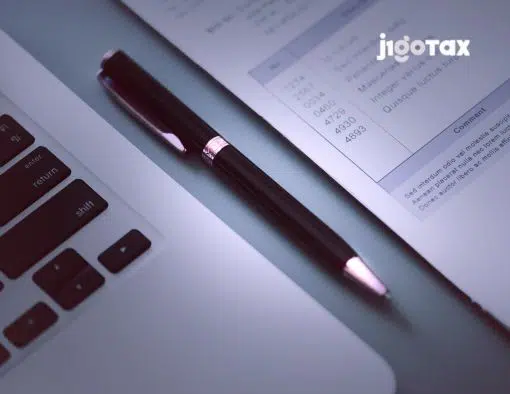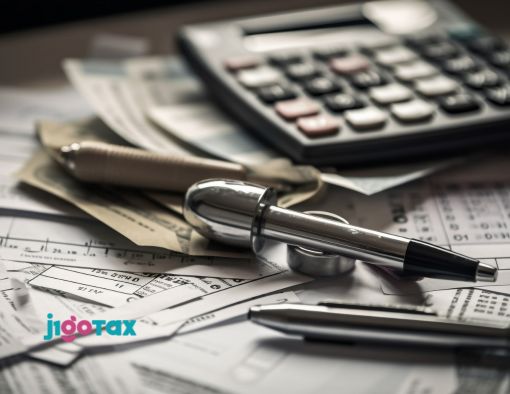Form 1042-S for J-1 Visa Holders
If you are in the U.S. on a J-1 visa and receive a scholarship, fellowship, or stipend, your sponsor or university will issue you Form 1042-S. This form reports income that is subject to U.S. tax but does not come from regular wages.
Many J-1 visa holders get confused between Form W-2 and Form 1042-S. Knowing the difference is essential for filing your tax return correctly.
👉 For a complete overview, check our J-1 Visa Taxes Guide.
👉 See also: Form 1040NR for J-1 visa holders and Form W-2 guide.

The Tax Moves Blog
What is Form 1042-S?
-
Scholarships and fellowships (taxable portions, usually covering living expenses).
-
Stipends or allowances paid by sponsors.
-
Other income subject to U.S. tax that is not wages.
You may receive both a W-2 (for wages) and a 1042-S (for scholarships). Both forms must be included in your tax return if issued.
Why Do J-1 Visa Holders Receive Form 1042-S?
J-1 students, interns, researchers, and teachers often receive financial support from their sponsoring institution. While tuition-related scholarships are not taxed, money given for living expenses, stipends, or allowances usually is. That’s why the IRS requires the 1042-S.
How to Use Form 1042-S in Your Tax Return
-
Report income from Form 1042-S on your Form 1040NR.
-
Attach Form 8843 (mandatory for all J-1 visa holders).
-
If your country has a tax treaty with the U.S., part of the income may be exempt.
-
Always keep a copy of your DS-2019 and scholarship documents in case the IRS asks for proof.
W-2 vs. 1042-S: The Key Difference
-
W-2 → Reports employment wages.
-
1042-S → Reports scholarships, stipends, or allowances.
Some J-1 visa holders get both forms, which is perfectly normal. In that case, you must report them together in your 1040NR.
Filing Deadlines
-
April 15, 2026 → If you received wages (W-2 and/or 1042-S).
-
June 15, 2026 → If you only file Form 8843 (no income).
Common Mistakes with Form 1042-S
-
Not filing because you think scholarships aren’t taxable (they often are).
-
Filing only Form 8843 and forgetting the 1042-S.
-
Missing treaty exemptions that reduce or eliminate tax liability.
-
Mixing up W-2 and 1042-S.

J1 Go Tax
At J1 Go Tax, we help J-1 students, researchers, and interns file both W-2 and 1042-S correctly. Many general tax platforms misreport scholarships, costing you money. With us, you pay nothing if you don’t get a refund.
👉 Try our free J-1 refund calculator and see how much you could claim back.
Core Guides & Calculators
1. Learn everything about J1 visa taxes — our complete 2026 step-by-step guide for nonresident workers with W-2 income.
2. Estimate your refund instantly with our J1 visa tax calculator — no signup required.
3. Compare Form 1040 vs 1040NR for J1 visa holders and find out which one applies to you.
4. Understand the importance of your DS-2019 form — it defines your program, tax status, and eligibility.
Forms & Tax Documents
5. Did you receive a 1099 instead of a W-2? Here’s what to do — Form 1099 for J1 visa workers explained.
6. Learn how to apply for your SSN or ITIN as a J1 visa holder before filing your taxes.
7. Understand your IRS transcripts for J1 visa taxes — what they show and how to request them.
8. Received a Form 1042-S? Discover what it means and how to include it in your tax return.
9. Find your Form W-2 for J1 visa — and learn what each box means when you file.
10. File correctly using the official Form 1040NR for J1 visa holders — step-by-step.
11. Don’t forget your Form 8843 — it’s mandatory even if you had no income.
12. Check this J1 visa tax return example using Form 1040NR to understand how everything fits together.
Special Cases & IRS Resources
13. Missed the April deadline? Learn how to file J1 visa taxes after April and still get your refund.
14. Review official IRS guidance on Taxation of J-1 visa holders and resident status.
You may also like
Do J-1 Visa Holders Pay State Taxes? A State-by-State overview
Do J-1 Visa Holders Pay State Taxes?Yes. J-1 visa holders generally must pay federal and state income tax on U.S.-source income. State rules differ: some tax any income earned in the state (nonresident sourcing), some tax residents on worldwide income, and a few states have no personal income tax at…
Substantial Presence Test for J-1 Visa Taxes – 1040NR or 1040 Explained
Substantial Presence Test for J-1 Visa Taxes: Resident vs Nonresident StatusThe Substantial Presence Test J-1 Visa Taxes is the IRS rule that determines whether a J-1 visa holder is classified as a nonresident alien or resident alien for U.S. tax purposes.This classification directly affects which tax form you must file…
J-1 Visa Taxes in Orlando – Guide for W-2 Workers Only
J-1 Visa Taxes in Orlando: What You Should KnowOrlando, Florida, hosts thousands of J-1 exchange visitors with Form W-2 income only, especially through programs connected to theme parks, hospitality, tourism, hotels, restaurants, retail, and cultural exchange organizations across Central Florida. Most employers in Orlando pay J-1 workers through standard W-2…
IRS Announces First Day of 2026 Tax Season – Filing Dates & Tools
IRS Announces First Day of the 2026 Tax SeasonThe Internal Revenue Service (IRS) has officially announced that January 26, 2026 will be the first day of the 2026 tax filing season. Starting on this date, the IRS will begin accepting federal tax returns for the 2025 tax year. This announcement…
J-1 Visa Taxes in South Bay – Guide for W-2 Workers Only
J-1 Visa Taxes in South Bay: What You Should KnowSouth Bay, including areas such as Torrance, Redondo Beach, Manhattan Beach, Hermosa Beach, Hawthorne, and El Segundo, hosts many J-1 exchange visitors with Form W-2 income only. Participants commonly work in hospitality, tourism, aviation, technology support, universities, retail, and service industries…
J-1 Visa Taxes in Long Beach – Guide for W-2 Workers Only
J-1 Visa Taxes in Long Beach: What You Should KnowLong Beach, California, hosts thousands of J-1 exchange visitors with Form W-2 income only, particularly through programs connected to ports and logistics, hospitality, tourism, universities, healthcare facilities, retail, and service industries across Los Angeles County. Most employers in Long Beach pay…
J-1 Visa Taxes Central Valley – W-2 Workers Only
J-1 Visa Taxes in Central Valley: What You Should KnowCalifornia’s Central Valley is home to a large number of J-1 exchange visitors with Form W-2 income only. Each year, non-resident workers are employed across agriculture support services, food processing, logistics, hospitality, education programs, healthcare assistance, and seasonal operations in cities…
J-1 Visa Taxes in Fresno – Guide for W-2 Workers Only
J-1 Visa Taxes in Fresno: What You Should KnowFresno and California’s Central Valley host a significant number of J-1 exchange visitors with Form W-2 income only each year. Participants work mainly in agriculture support services, food processing, hospitality, education programs, healthcare assistance, cultural exchange roles, and seasonal employment across Fresno…
J-1 Visa Taxes in Ventura, CA: What You Should Know
J-1 Visa Taxes in Ventura: What You Should KnowVentura and the surrounding coastal areas host a steady population of J-1 exchange visitors with Form W-2 income only each year. Participants are employed mainly in hospitality, coastal tourism, restaurants, seasonal services, agriculture support roles, cultural exchange programs, and education-related employers across…
J-1 Visa Taxes in Santa Bárbara – Guide for W-2 Workers Only
J-1 Visa Taxes in Santa Bárbara: What You Should KnowSanta Bárbara and the Central Coast welcome thousands of J-1 exchange visitors employed by beach resorts, university programs, seasonal tourism businesses, and healthcare training centers with Form W-2 income only each year. Most employers in Santa Bárbara pay J-1 participants through…










